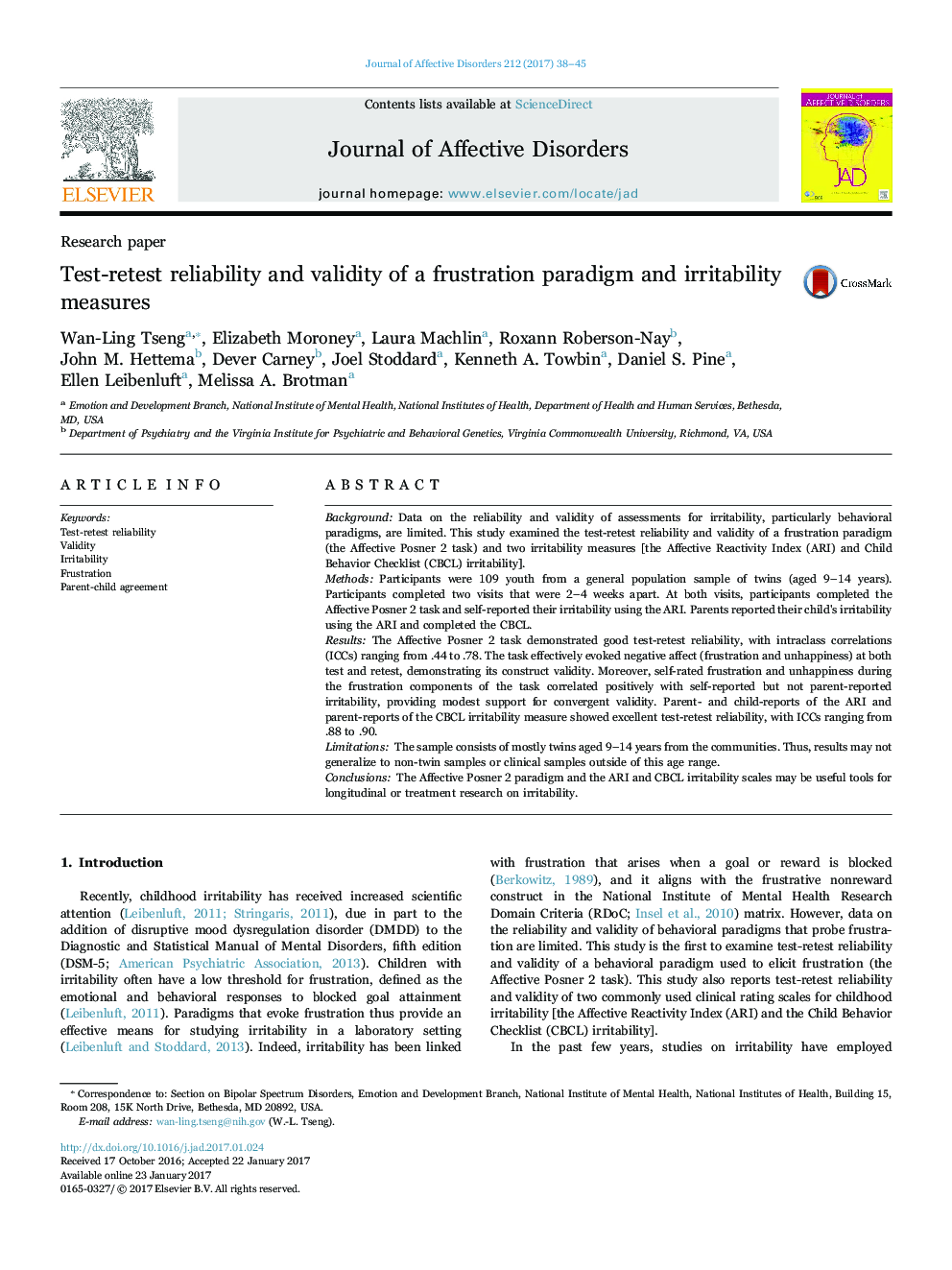| Article ID | Journal | Published Year | Pages | File Type |
|---|---|---|---|---|
| 5722422 | Journal of Affective Disorders | 2017 | 8 Pages |
â¢The Affective Posner 2 task demonstrated good test-retest reliability.â¢The task evoked negative affect at test and retest, showing construct validity.â¢The task showed convergent validity with self-reported irritability.â¢The ARI and CBCL irritability measures showed excellent test-retest reliability.â¢The measures may be useful for clinical or longitudinal research on irritability.
BackgroundData on the reliability and validity of assessments for irritability, particularly behavioral paradigms, are limited. This study examined the test-retest reliability and validity of a frustration paradigm (the Affective Posner 2 task) and two irritability measures [the Affective Reactivity Index (ARI) and Child Behavior Checklist (CBCL) irritability].MethodsParticipants were 109 youth from a general population sample of twins (aged 9-14 years). Participants completed two visits that were 2-4 weeks apart. At both visits, participants completed the Affective Posner 2 task and self-reported their irritability using the ARI. Parents reported their child's irritability using the ARI and completed the CBCL.ResultsThe Affective Posner 2 task demonstrated good test-retest reliability, with intraclass correlations (ICCs) ranging from .44 to .78. The task effectively evoked negative affect (frustration and unhappiness) at both test and retest, demonstrating its construct validity. Moreover, self-rated frustration and unhappiness during the frustration components of the task correlated positively with self-reported but not parent-reported irritability, providing modest support for convergent validity. Parent- and child-reports of the ARI and parent-reports of the CBCL irritability measure showed excellent test-retest reliability, with ICCs ranging from .88 to .90.LimitationsThe sample consists of mostly twins aged 9-14 years from the communities. Thus, results may not generalize to non-twin samples or clinical samples outside of this age range.ConclusionsThe Affective Posner 2 paradigm and the ARI and CBCL irritability scales may be useful tools for longitudinal or treatment research on irritability.
